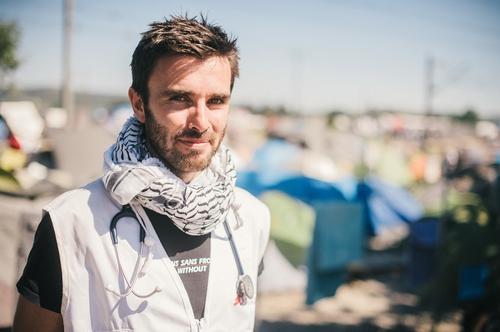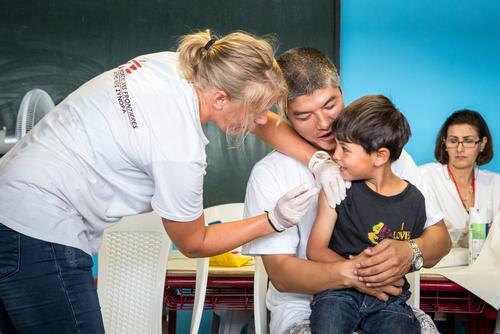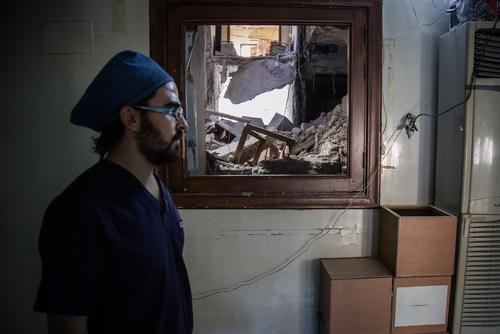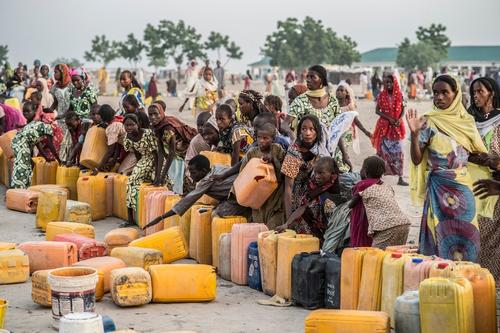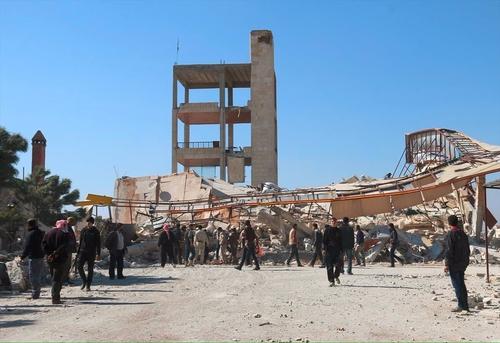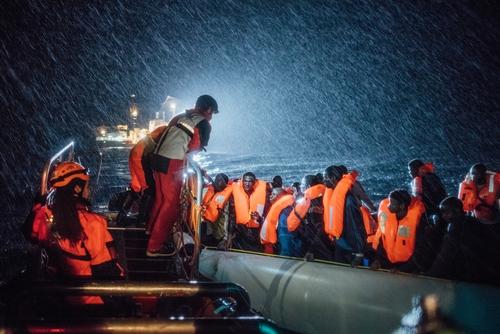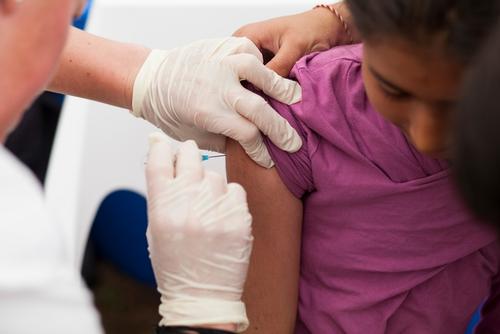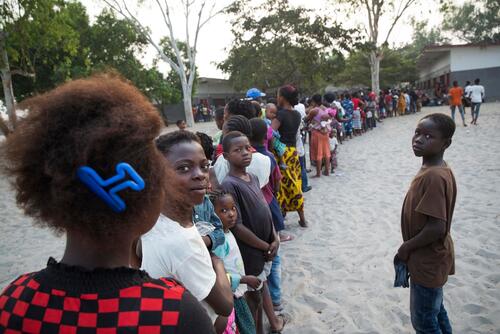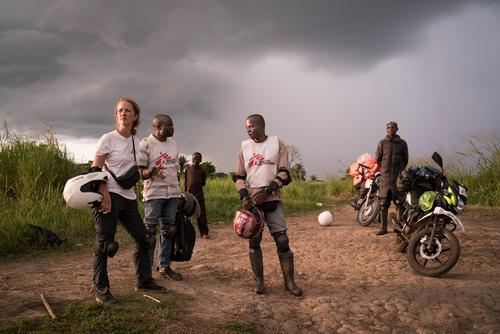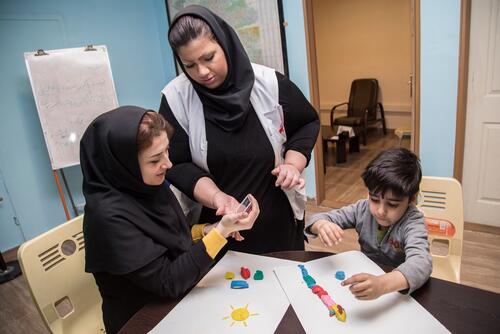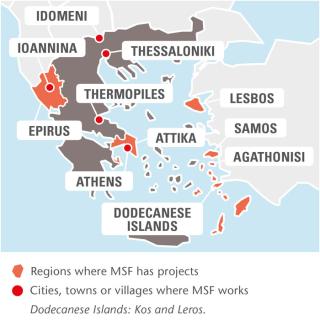
54,200
54,2
8,100
8,1
650
65
However, the closure of the Balkan route and the EU deal with Turkey in March left migrants and refugees stranded, without access to basic services, adequate shelter or information on their legal status. MSF shifted its focus from providing lifesaving surgery and medical care to people on the move to addressing the specific needs of those stuck in unsanitary camps.
Lesbos
After the signing of the EU–Turkey deal, the number of migrants arriving on Greek islands decreased sharply. Between January and September, MSF carried out 12,909 basic healthcare consultations across the island, through its mobile clinics and inside Moria and Kara Tepe registration centres. In Matamados, in the north of the island, MSF ran a transit centre for new arrivals and organised buses to transport them to registration centres. After March, the Moria hotspot became a pre-removal detention centre, offering little guarantee of respect for human rights. MSF decided to halt all its activities in Moria, including transport, and hand over its medical services to other organisations. MSF continued to provide medical and mental healthcare in Kara Tepe camp and respond to the needs of the most vulnerable people.
In September, MSF opened a clinic in Mytilene town centre offering sexual and reproductive healthcare, treatment for chronic diseases and mental health support. A team also started outreach activities in Moria to identify specific vulnerabilities and mental health needs.
Samos
On Samos island, MSF provided basic healthcare for new arrivals at the port, as well as in the prison, at the request of the local police. MSF also deployed a medical land rescue team (MLRT) to give first aid, distribute relief items such as blankets, clothes and tents, and provide transport to people who needed to reach the camps and medical facilities further inland. The MLRT assisted 5,721 people before the activity was stopped in May. Another MLRT operated on Agathonisi island, south of Samos.
Before an official hotspot was constructed, MSF provided 18,700 meals in the Samos migrant camp, and distributed 1,470 tents and 2,800 blankets.
Inside the Samos hotspot, conditions rapidly deteriorated between March and December. It was initially built as a detention centre to hold 280 people. In 2016, the Greek authorities expanded the capacity to 600 places but by the end of the year, the population had grown to over 2,000, and new arrivals had to sleep in tents scattered across cleared patches of forest. MSF provided mental health services through 170 individual consultations and 249 follow-up consultations between March and December
MSF also operates a shelter for vulnerable people on Samos through a local hotel. Between May and December, the team provided accommodation and primary healthcare to 180 people from 39 families and made referrals to local secondary healthcare facilities.
Search and rescue (SAR) on the Aegean Sea
MSF launched SAR activities off the island of Lesbos in collaboration with Greenpeace, assisting more than 18,117 people in 361 interventions between December 2015 and March 2016. Due to the sharp decrease in arrivals, MSF halted these activities in August.
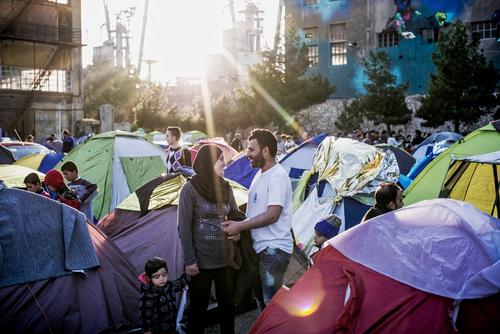
Athens
MSF operates three clinics in Athens to respond to the specific needs of migrants and asylum seekers living in formal and informal accommodation in the city. The Athens Urban Day Care Centre provides sexual and reproductive healthcare and mental health support and has an outreach unit that visits migrants where they live. A clinic in Victoria Square offers basic and mental healthcare on a walk-in basis. Between February and December, over 4,055 medical consultations were carried out there. In addition, an MSF psychologist treated 152 patients and conducted 574 individual mental health consultations. In Kypseli, a team of psychologists, doctors, physiotherapists, social workers and cultural mediators works with local partners to offer interdisciplinary rehabilitation to victims of torture and other forms of ill treatment. After the implementation of the EU-Turkey agreement, the monthly average of new cases increased from 10 to almost 40.
MSF offered basic healthcare in Eleonas camp, Korinthos detention centre and Piraeus port, carrying out 6,734 consultations during the year and accompanying 623 patients for specialised medical services. In Elliniko camp, which hosted up to 4,000 refugees in 2016, the team provided sexual and reproductive healthcare and mental health support.
Attica region
At the height of the emergency, MSF teams distributed 6,600 meals and 9,660 blankets and provided over 1,680 medical consultations to migrants transferred from the islands to the mainland. Teams worked across the region, offering mental health support to people living in dire conditions in overcrowded camps in Ritsona, Malakasa, Lavrio and Aghio Andreas, and in Thermopiles, where sexual and reproductive healthcare was also available. Between June and December, teams carried out 573 consultations with 184 patients.
Northern Greece
With the increasing restrictions on movement thousands of people attempting to cross the border between Greece and the Former Yugoslav Republic of Macedonia were stranded in the informal camp at Idomeni in squalid conditions, with little access to services. Between January and June, MSF provided shelter, water, sanitation facilities and medical care through 27,085 consultations. Services included basic healthcare, treatment for chronic diseases, sexual and reproductive healthcare and mental health support.
After the camp was dismantled, thousands of people were transferred to camps around Thessaloniki. Teams offered mental health support in five of the camps, conducting a total of 1,177 individual sessions and 85 group sessions between July and the end of the year.
Further west, MSF provided mental health services in Ioannina from April, and until September, ran a mobile clinic offering basic healthcare to three camps in the area. 1,487 consultations were provided, and 249 of those patients were referred to the public health system for specialised medical care
MSF continued to support local volunteer groups who distribute relief items such as tents, blankets and clothes to migrants and refugees.
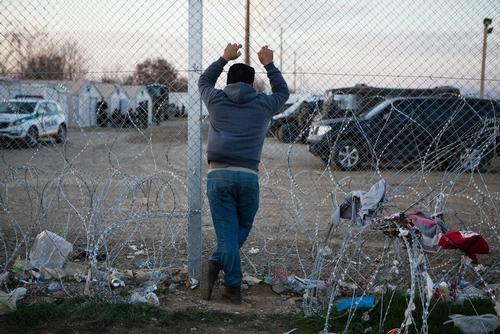
Vaccination campaigns
MSF conducted a vaccination campaign in Idomeni camp before it closed. Between July and September, a team also supported a Ministry of Health vaccination campaign against the 10 most common childhood diseases. The campaign targeted more than 7,000 children aged between six weeks and 15 years in more than 15 locations across the Greek mainland, Athens, and some of the islands.
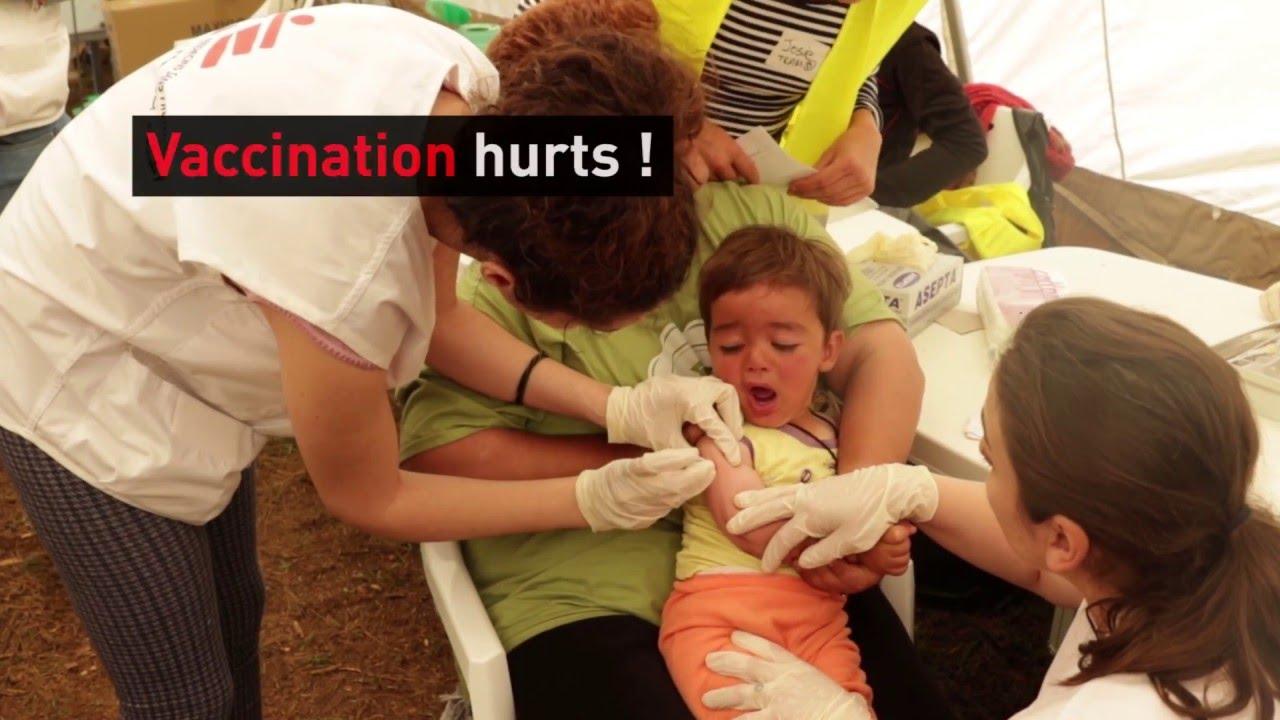
MSF Vaccinates 5,000 Refugee Children in Idomeni, Greece
60
6
25.1 M
25.1M
1991
1991
Find us online
Staff Story
Conor Kenny - Doctor
They escape only to be confronted with a new challenge here at Idomeni. The camp in the north of Greece on the border with the Former Yugoslav Republic of Macedonia has formed around an international freight train station for goods and a cattle slaughterhouse. Accommodating over 10,000 refugees and migrants, these people live in constant fear. Fear of the unknown. Fear of receiving the worst news from home - will the next bomb in Syria kill somebody they love? The genuine fear of being sent back.
The distress and frustration here is palpable. For Hamza, we had to prescribe relaxants. An extreme response - used as a last resort. But in this case, he was causing himself serious physical harm and with many women and young children inside, we had no other option. We kept him in the clinic for observation and spent time listening to his story before referring him to one of our psychologists.
I hope he will do well. But to be honest, I don’t know what will happen to him as time goes on. Nobody knows what will happen to him, or indeed anyone stuck Idomeni. It seems they are trapped in no-man’s land. As one patient told me, “We are dying here, just like we were in Syria, but slower”.
Learn More